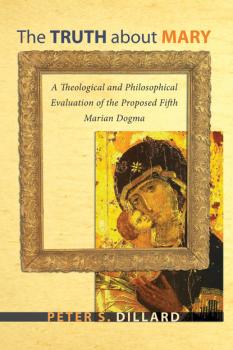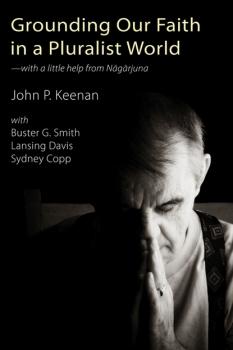ТОП просматриваемых книг сайта:
Словари
Различные книги в жанре Словари, доступные для чтения и скачиванияАннотация
This collection of five essays is both a dialogical engagement with and critical assessment of Nancy R. Howell's book Constructing a Relational Cosmology. The collection includes three essays written from a Whiteheadian process perspective (by Marit A. Trelstad, Kathlyn A. Breazeale, and Marjorie Hewitt Suchocki), one from the perspective of narrative theology (Lisa Stenmark), and one from the Soto Zen Buddhist perspective (Stephanie Kaza). Howell, responding as a Whiteheadian feminist philosopher of religion, takes the critiques and suggestions of her dialogical partners with the utmost seriousness as her foundation for suggesting new directions for ecofeminist thought–an example of what Whiteheadians call «the process of creative transformation.»
Аннотация
Messianic Jewish Theological Institute
"Teaching and Living a Vision of Jewish Life Renewed in Yeshua"
Messianic Jewish Theological Institute (MJTI) seeks to be:
– a prophetic sign of Israel's destiny by exemplifying and advancing Jewish life renewed in Yeshua;
– a Messianic Jewish school rooted in a contemporary Jewish experience of Yeshua and a Messianic interpretation of Judaism;
– a vision center for the Messianic Jewish community;
– a dialogue center for theological encounter between faithful Christians and Jews; and
– an international learning community born in the Diaspora but oriented to Israel.
Messianic Jewish Theological Institute P.O. Box 54410 Los Angeles, CA 90054-0410 www.mjti.com www.kesherjournal.com
"Teaching and Living a Vision of Jewish Life Renewed in Yeshua"
Messianic Jewish Theological Institute (MJTI) seeks to be:
– a prophetic sign of Israel's destiny by exemplifying and advancing Jewish life renewed in Yeshua;
– a Messianic Jewish school rooted in a contemporary Jewish experience of Yeshua and a Messianic interpretation of Judaism;
– a vision center for the Messianic Jewish community;
– a dialogue center for theological encounter between faithful Christians and Jews; and
– an international learning community born in the Diaspora but oriented to Israel.
Messianic Jewish Theological Institute P.O. Box 54410 Los Angeles, CA 90054-0410 www.mjti.com www.kesherjournal.com
Аннотация
If you were told that Christ assumed a fallen human nature, how would you respond? This statement makes many uncomfortable because they believe that to agree with this statement would sacrifice the sinlessness of Jesus. Others have said that this view is heretical and completely undermines what scripture teaches. But does it? In Flesh and Blood, Daniel J. Cameron examines this idea and its critics, such as Oliver Crisp and Kevin Chiarot, to see if it is possible to say that Christ did in fact assume a fallen human nature. Daniel examines one of the most well known proponents of this view, T.F. Torrance, to see if his arguments can overcome those who have critiqued him. Daniel begins by explaining the fallen nature view from the perspective of Torrance. He then moves to explain some of the biggest critiques of this view and then, in chapter 4, seeks to find an answer to the critics. This book ends by examining the role of the Holy Spirit in the life of Christ as it pertains to this question.
Аннотация
In an academic world that has rejected a Christian ontology, metaphysic, and epistemology, as well as the secular foundationalism of modernity, one is hard-pressed to find any secular academician in the field of interdisciplinary studies (IDS) advocating a definitive starting point and methodology for IDS.
In A Christian Approach to Interdisciplinary Studies, William D. Dennison asks, is such a study truly integrative that does not have an ontological, integrative starting point and the constitutive component of method? To put the question another way, without the God of the Bible as the author of integration within creation, can there truly be IDS? Indeed, Dennison calls for the integration of approach and method, integration provided and modeled by the triune God of Scripture. Adapted from the Preface
In A Christian Approach to Interdisciplinary Studies, William D. Dennison asks, is such a study truly integrative that does not have an ontological, integrative starting point and the constitutive component of method? To put the question another way, without the God of the Bible as the author of integration within creation, can there truly be IDS? Indeed, Dennison calls for the integration of approach and method, integration provided and modeled by the triune God of Scripture. Adapted from the Preface
Аннотация
Building Up the Church: Live Experiments in Faith, Hope, and Love, the companion volume to Jonathan Wilson-Hartgrove's book, New Monasticism: What It Has to Say to Today's Church (2008), is a practical study guide to invite the church to imagine that «another ways is possible» as it lives into its identity as «God's peculiar people» (Titus 2:14). Its stories, reflection questions, and suggested exercises are designed to catalyze local churches and Christian communities into becoming «laboratories for the gospel kingdom»–that is, communities that serve the living God and their neighbors by carrying out experiments in faith, hope, and love.
Аннотация
In recent years a powerful grassroots movement has emerged calling for the papal definition of a fifth Marian dogma declaring the Blessed Virgin Mary to be Co-Redemptrix, Mediatrix of all graces, and Advocate. There has also been strong opposition to any such definition for various reasons. In The Truth about Mary, Peter Dillard clarifies this debate by providing a rigorous analysis of each thesis contained in the proposed dogma and determining whether a formal definition is appropriate at this time. The resulting theological and philosophical evaluation will be helpful to readers seeking a better understanding of what is at stake in a controversy that has far-reaching ramifications for the future of the Church.
Аннотация
African Christian theology has been developing for the last four decades. The trend has been to focus on traditional African religions as a foundation for Christian theology. While acknowledging the importance of African traditional religions to Christian theology in Africa, this study argues that African history progressively changes, and it is these changed and changing circumstances that theology is to address. This work analyzes issues affecting Africa today and shows the social and political role that Christianity has to play in an African context.
This study views enculturation as a dialogue among African Christians, their history and culture, and Christian teachings. Theological approaches such as anthropological, liberation, and historical are analyzed from the perspective of Small Christian Communities (SCCs), which are a recent development in African Christianity. SCCs are presented as a concrete hermeneutical tool in theological analyses. Further, this work acknowledges the indispensable need for an authentic African Christology in an African Christian theology. While critical of contemporary African Christology, the study also suggests issues to be considered in the development of African Christology.
This study views enculturation as a dialogue among African Christians, their history and culture, and Christian teachings. Theological approaches such as anthropological, liberation, and historical are analyzed from the perspective of Small Christian Communities (SCCs), which are a recent development in African Christianity. SCCs are presented as a concrete hermeneutical tool in theological analyses. Further, this work acknowledges the indispensable need for an authentic African Christology in an African Christian theology. While critical of contemporary African Christology, the study also suggests issues to be considered in the development of African Christology.
Аннотация
Contemporary treatments of Calvin's political views often imply that he embraced a theocratic civil polity and that he was committed to holy war doctrine. On the basis of the primary sources, the first half of this volume argues that neither position is correct. Calvin, in his political thought, maintained the superiority of a republic as a civil polity. In addition, he placed himself firmly within the medieval just war tradition that was established by Augustine of Hippo and later reaffirmed by Thomas Aquinas. In terms of his commitment to classical just war teaching, Calvin stood in continuity with Martin Luther, even while he distanced himself from the holy war perspective of the Zurich Reformers Henry Bullinger and Peter Martyr Vermigli. In the thinking of Calvin, a war could only be authorized by the state, not the church. War had to be prosecuted with humanity and restraint, and not in the tradition of the medieval crusade. The second half of the book sets forth what Calvin actually believed on the matter of government and war. Here we examine his teaching on parliamentary resistance to monarchical tyranny and the full dimensions of his commitment to justice of war categories. Unlike Luther and Bullinger, Calvin provided a parliamentary remedy for the perennial evil of tyranny. With Vermigli and Theodore Beza siding with Calvin on this right, a body of Reformed doctrine was established to which succeeding generations could appeal for teaching, direction, and justification for taking up arms. It is clear that Calvin's political legacy is profoundly evident in the American Revolutionary War and in the constitutional determination for a republic in the United States of America. Calvin's ecclesiastical republicanism, as it came to fruition in Presbyterian church government, was a powerful impetus toward the creation of republican institutions in civil government.
Аннотация
The story of Jonah is sacred to all three Abrahamic faiths and remains a recognizable legend even in the most secularized corners of the West.
And yet the maritime prophet's story has been trivialized as a quaint children's tale, his character has been blasted by unsympathetic commentators, and even his alleged tomb has now been destroyed by Islamic State militants who, in 2014, took the city of Mosul on the Nineveh Plains.
Now that Nineveh is once again in the grip of tyrannical violence and communities across the West and the Middle East are deep in a time of discord and soul-searching, we might do well to recover the story of Jonah, a guiding light, who marches into the very heart of empire and confronts it with the radical politics of the kingdom of God, even as his own certainties are shaken to the core.
And yet the maritime prophet's story has been trivialized as a quaint children's tale, his character has been blasted by unsympathetic commentators, and even his alleged tomb has now been destroyed by Islamic State militants who, in 2014, took the city of Mosul on the Nineveh Plains.
Now that Nineveh is once again in the grip of tyrannical violence and communities across the West and the Middle East are deep in a time of discord and soul-searching, we might do well to recover the story of Jonah, a guiding light, who marches into the very heart of empire and confronts it with the radical politics of the kingdom of God, even as his own certainties are shaken to the core.
Аннотация
This book draws upon the Mahayana philosophy developed within Buddhism, employing it as a means to empty our usual alternatives for viewing the world's many religions–whether exclusivism, inclusivism, or pluralism. The aim is to free people from clinging to intellectual positions, enabling them gently but committedly to affirm their vernacular tradition as it is practiced on the ground. It critiques the above three options, and introduces the Mahayana philosophy of emptiness and dependent arising, along with its distinction between ultimate truth and conventional truth. It then applies this philosophy to an urgent question that bedevils modern people: how to practice one's chosen faith in the awareness of many other honored and attractive paths, both elegant and efficacious.










